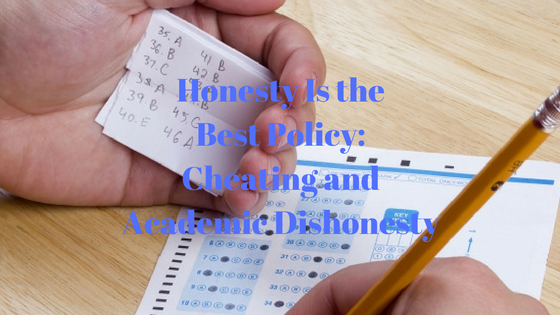
Recent reports indicate that academic dishonesty is on the rise at American colleges and universities. While cheating has been around since the dawn of our education system, modern-day technology can facilitate plagiarism, cheating, and general academic dishonesty, and some say that current student culture promotes such behaviors.
So what is academic dishonesty? Academic dishonesty include “cheating, fraud, and plagiarism” and it can come in many forms, from multiple submissions of work, misuse of academic materials, fabrication and falsification, and plagiarism. Plagiarism refers to the stealing and passing off (of ideas or words of another) as one’s own, often without crediting the source.
In large lecture classes, and in online classes, it might be frequent for students to sneak in crib sheets or cheat on exams. Since so many students are enrolled in online classes, and online classes do not have the same in-person accountability systems that traditional classes do, cheating is prevalent in online courses. Research shows that 72% of students enrolled in online classes confess to cheating.
There are some common clues that professors can use to identify if a student has likely plagiarized on a paper or essay – if the quality of the work does not match the student’s previous work, if the language used in the paper is not typical of the student’s work, if the paper lacks references and citations, if the paper lacks a cohesive argument or inconsistent voice, and if the bibliography of the citations are not current or relevant, the student may have plagiarized. Follow this link for suggestions on software and online tools to automatically detect plagiarism.
If you suspect that a student has plagiarized or cheated on a test, follow-up with your administration and the student. Without accusing the student, inquire as to what they’ve done to improve their performance, or probe their understanding of the topic. Consult with your supervisor or department chair to understand your institution’s policies regarding academic dishonesty – because cheating is a serious problem, and it requires a serious response.

